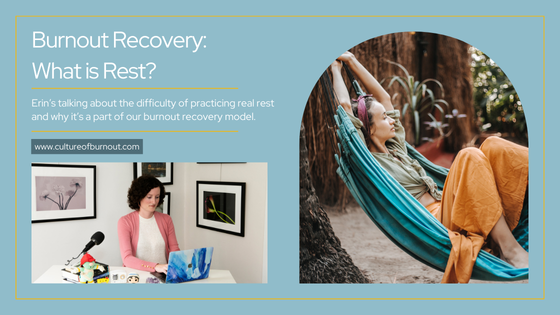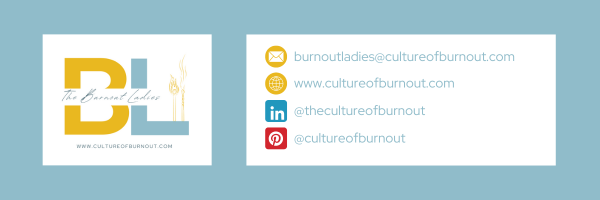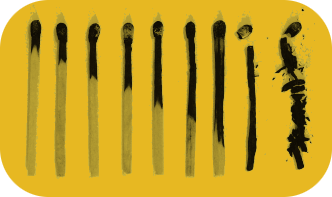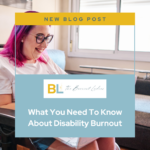
What is rest?
This may seem like a slightly ridiculous question, but trust us. Rest can mean a lot of things, to a lot of people. To us, it is part of our model for burnout recovery. We’ve introduced The 4 R’s of Burnout Recovery already on this blog. Now, we’re going to break down what each ‘R’ means – starting with the first ‘R’, rest.
We use The 4 R’s to think about the concept of ‘rest’ beyond the conventional use of the word. It’s more than sleeping. It’s more than a bubble bath. It’s more than a vacation. We’re talking about deep personalized mental and physical shifts.
Yes, rest includes sleep, but it’s so much more than that.
Why is rest essential to burnout recovery?
If you’ve ever read or heard anything about how to combat burnout, then you’ve probably heard the advice, “You need to get more rest.” If burnout is a “workplace phenomena” and the opposite of work is rest, then it’s easy to see why “getting enough rest” is the go-to advice for burnout sufferers, but that’s easy to say and difficult to do.
Rest is at the core of our model on burnout recovery, because we burnout from overwork and exhaustion. Naturally, the antidote to burnout is rest. For us, holistic rest means incorporating all 4 R’s into your daily life. But, the first ‘R’ is rest for a reason.
We can’t really focus on rejuvenation, realignment, or reconnection if we aren’t getting physical rest first.
What is physical rest?
Again, this might seem like a silly question. But ask yourself this, if Americans are so good at understanding rest, then why are we the most burned out country in the world?
Physical rest is actually quite simple. The problem is that it is countercultural. Physical rest means sleep and any other activities that stop the movement of our bodies and give them time to heal. Sleep is imperative, obviously. But sleep isn’t easy for everyone.
And real rest takes a lot more work than we think. The whole idea of stopping movement. Of taking a breath. Of being still. Long enough for a recovery process to kick in and to achieve some actual healing.
Those concepts go against our cultural messaging of “go hard or go home” or “I’ll sleep when I’m dead” when it comes to our relationships with paid work. Rest means taking time to stop in a culture that tells you should always be hustling for the next promotion, next achievement, next goal. It’s hard work, but it’s necessary.
If you’re ready to learn more about our burnout recovery model, check out our book HERE.



